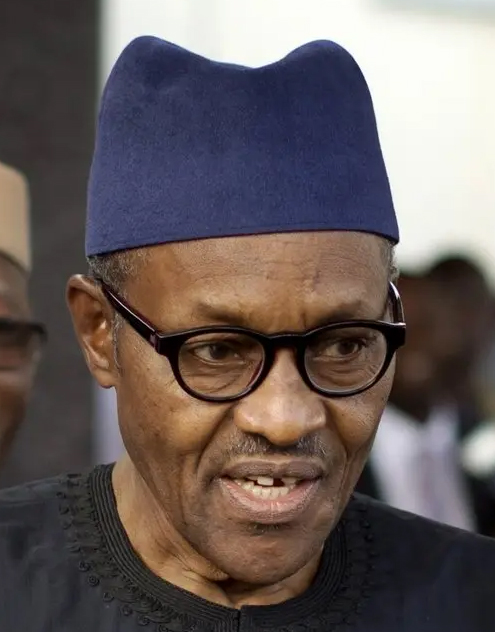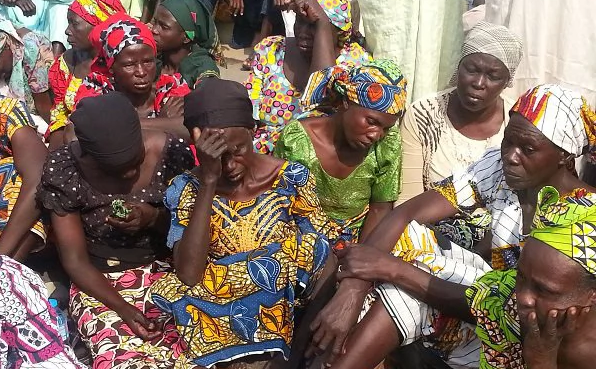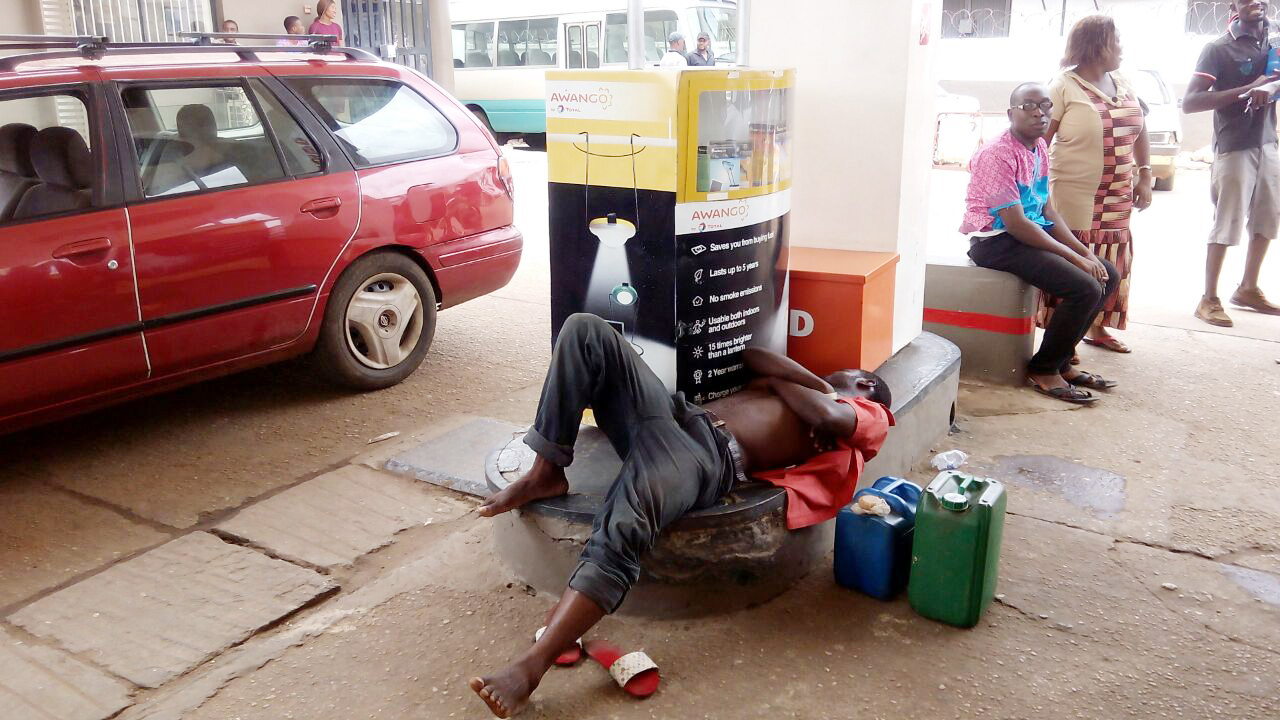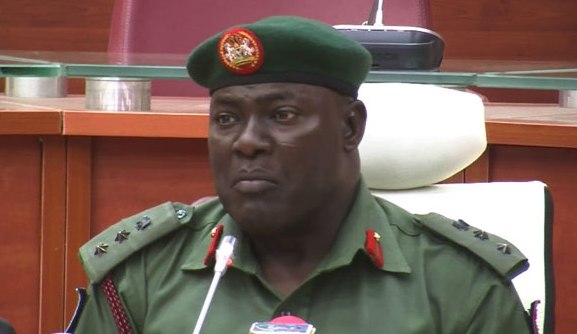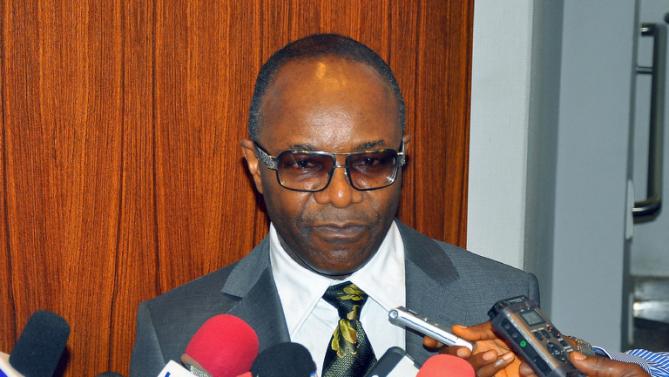I am delighted to be invited to this event to exchange views with you my fellow invited guests representing Governments, the Private Sector and Civil Society Organizations. I thank you Your Excellency, the Secretary-General of the Commonwealth, for asking me to speak at this gathering.
Corruption is a hydra-headed monster and a cankerworm that undermines the fabric of all societies. It does not differentiate between developed and developing countries. It constitutes a serious threat to good governance, rule of law, peace and security, as well as development programmes aimed at tackling poverty and economic backwardness. These considerations informed my decision to attend this event as well as the Anti-Corruption Summit organized by Prime Minister Rt. Hon. David Cameron that will be held tomorrow. I expect that today’s event would feed into the discussions that will be held tomorrow at Lancaster House.
In 2003, when the world came together to sign the United Nations Convention Against Corruption (UNCAC) that entered into force in 2005, it was with a view to tackling the growing threat that corruption had become to many nations. Little did we know that eleven years since then, the problem would still continue unabated, but even become more intractable and cancerous.
Excellencies,
Advertisement
Permit me to share with you our national experience in combating corruption. I intend to do this by placing the fight against corruption in Nigeria within the context of the three priority programmes of our Administration. On assumption of office on 29th May 2015, we identified as our main focus three key priority programmes. They are, combating insecurity, tackling corruption and job creation through re-structuring the declining national economy.
Our starting point as an Administration was to amply demonstrate zero tolerance for corrupt practices as this vice is largely responsible for the social and economic problems our country faces today. The endemic and systemic nature of corruption in our country demanded our strong resolve to fight it. We are demonstrating our commitment to this effort by bringing integrity to governance and showing leadership by example.
Excellencies, Ladies and Gentlemen
Advertisement
Tackling the menace of corruption is not an easy task, but it is possible even if many feathers have to be ruffled. Our Government’s dogged commitment to tackling corruption is also evident in the freedom and support granted to national anti-corruption agencies to enable them to carry out their respective mandates without interference or hindrance from any quarter including the government.
Today, our frontline anti-corruption agencies, namely, the Economic and Financial Crimes Commission (EFCC), the Independent Corrupt Practices and other related Offences Commission (ICPC), the Code of Conduct Bureau (CCB) and the Code of Conduct Tribunal (CCT), have become revitalised and more proactive in the pursuit of perpetrators of corrupt practices, irrespective of their social status and political persuasion. This is a radical departure from the past.
We have implemented the Treasury Single Account (TSA) whereby all Federal government revenue goes into one account. This measure would make it impossible for public officers to divert public funds to private accounts as was the practice before. Through the effective application of TSA and the Bank Verification Number (BVN), we have been able to remove 23,000 ghost workers from our pay roll, thereby saving billions that would have been stolen.
We are also reviewing our anti-corruption laws and have developed a national anti-corruption strategy document that will guide our policies in the next three years, and possibly beyond.
Advertisement
I am not unaware of the challenges of fighting corruption in a manner consistent with respect for human rights and the rule of law. As a country that came out of prolonged military rule only sixteen years ago, it will clearly take time to change the mentality and psychology of law enforcement officers. I am committed to applying the rule of law and to respecting human rights. I also require our security agencies to do the same.
I admit that there are a few cases where apparently stringent rules have been applied as a result of threats to national security and the likelihood that certain persons may escape from the country or seek to undermine the stability of Nigeria. It is for this reason that we are seeking the support of many countries for the prosecution of certain individuals residing in their jurisdictions. Of course we will provide the necessary legal documents and whatever mutual assistance is required to secure conviction of such individuals, as well as facilitate the repatriation of our stolen assets.
Unfortunately, our experience has been that repatriation of corrupt proceeds is very tedious, time consuming, costly and entails more than just the signing of bilateral or multilateral agreements. This should not be the case as there are provisions in the appropriate United Nations Convention that require countries to return assets to countries from where it is proven that they were illegitimately acquired.
Further, we are favourably disposed to forging strategic partnerships with governments, civil society organizations, organized private sector and international organizations to combat corruption. Our sad national experience had been that domestic perpetrators of corrupt practices do often work hand-in-hand with international criminal cartels.
Advertisement
This evil practice is manifested in the plundering and stealing of public funds, which are then transferred abroad into secret accounts. I therefore, call for the establishment of an international anti-corruption infrastructure that will monitor, trace and facilitate the return of such assets to their countries of origin. It is important to stress that the repatriation of identified stolen funds should be done without delay or preconditions.
In addition to the looting of public funds, Nigeria is also confronted with illegal activities in the oil sector, the mainstay of our export economy. That this industry has been enmeshed in corruption with the participation of the staff of some of the oil companies is well established. Their participation enabled oil theft to take place on a massive scale.
Advertisement
Some of us in this hall may be familiar with the Report released by Chatham House, here in London, in 2013, titled “Nigeria’s Criminal Crude: International Options to Combat the Export of Stolen Oil.” The important findings of the Chatham House document are illuminating and troubling. Part of the Report concluded that:
a) Nigerian crude oil is being stolen on an industrial scale and exported, with the proceeds laundered through world financial centres by transnational organized criminals.
Advertisement
b) Oil theft is a species of organized crime that is almost totally off the international community’s radar, as Nigeria’s trade and diplomatic partners have taken no real action.
c) Nigeria could not stop the trade single-handedly, and there is limited value in countries going it alone.
Advertisement
It is clear therefore, that the menace of oil theft, put at over 150,000 barrels per day, is a criminal enterprise involving internal and external perpetrators. Illicit oil cargoes and their proceeds move across international borders. Opaque and murky as these illegal transactions may be, they are certainly traceable and can be acted upon, if all governments show the required political will. This will has been the missing link in the international efforts hitherto. Now in London, we can turn a new page by creating a multi-state and multi-stakeholder partnership to address this menace.
We, therefore, call on the international community to designate oil theft as an international crime similar to the trade in “blood diamonds”, as it constitutes an imminent and credible threat to the economy and stability of oil-producing countries like Nigeria. The critical stakeholders here present can lead the charge in this regard.
Excellencies, Ladies and Gentlemen
By the end of our summit tomorrow, we should be able to agree on a rules-based architecture to combat corruption in all its forms and manifestations. I agree fully with the Commonwealth Secretary-General that anti-corruption is a shared agenda for civil society, business and government, requiring commitment from companies, creating a space for civil society and governments providing support for whistle-blowers.
A main component of this anti-corruption partnership is that governments must demonstrate unquestionable political will and commitment to the fight. The private sector must come clean and be transparent, and civil society, while keeping a watch on all stakeholders, must act and report with a sense of responsibility and objectivity.
For our part, Nigeria is committed to signing the Open Government Partnership initiatives alongside Prime Minister Cameron during the Summit tomorrow.
In conclusion, may I commend the Commonwealth Secretary-General and her team for hosting this important event. This is a very encouraging way to start your tenure. We wish you the very best as you guide the affairs of the Commonwealth family in the years to come.
I thank you.
Being the president’s address at the Commonwealth event on ‘Tackling Corruption Together’ held at the Commonwealth Secretariat in London on May 11, 2016
Add a comment
